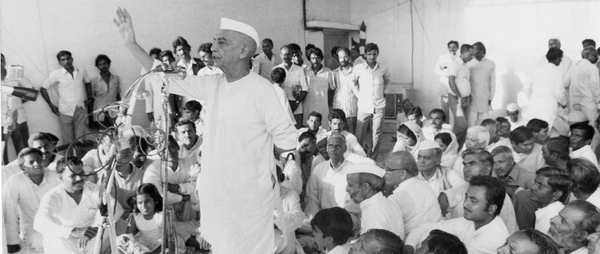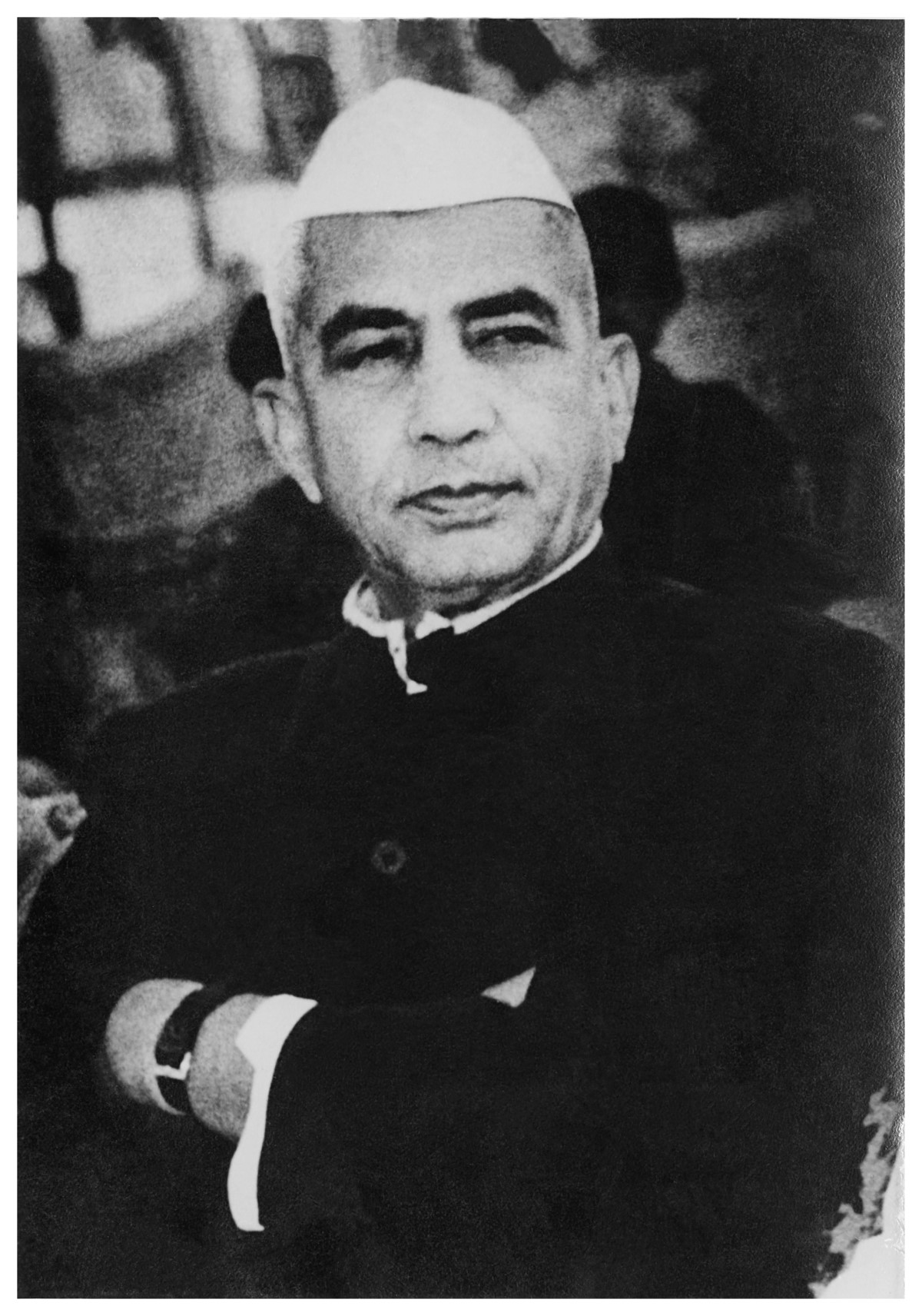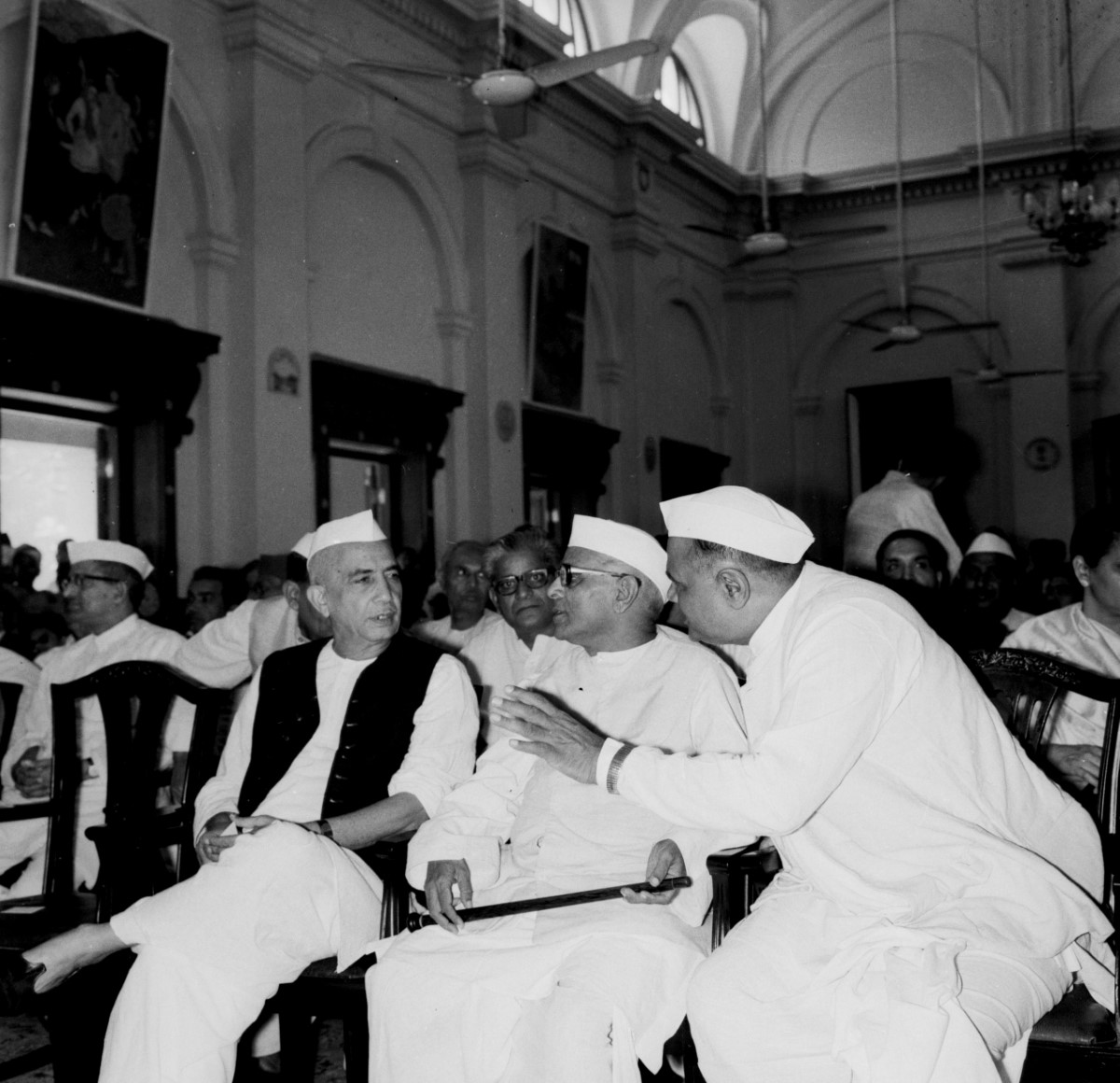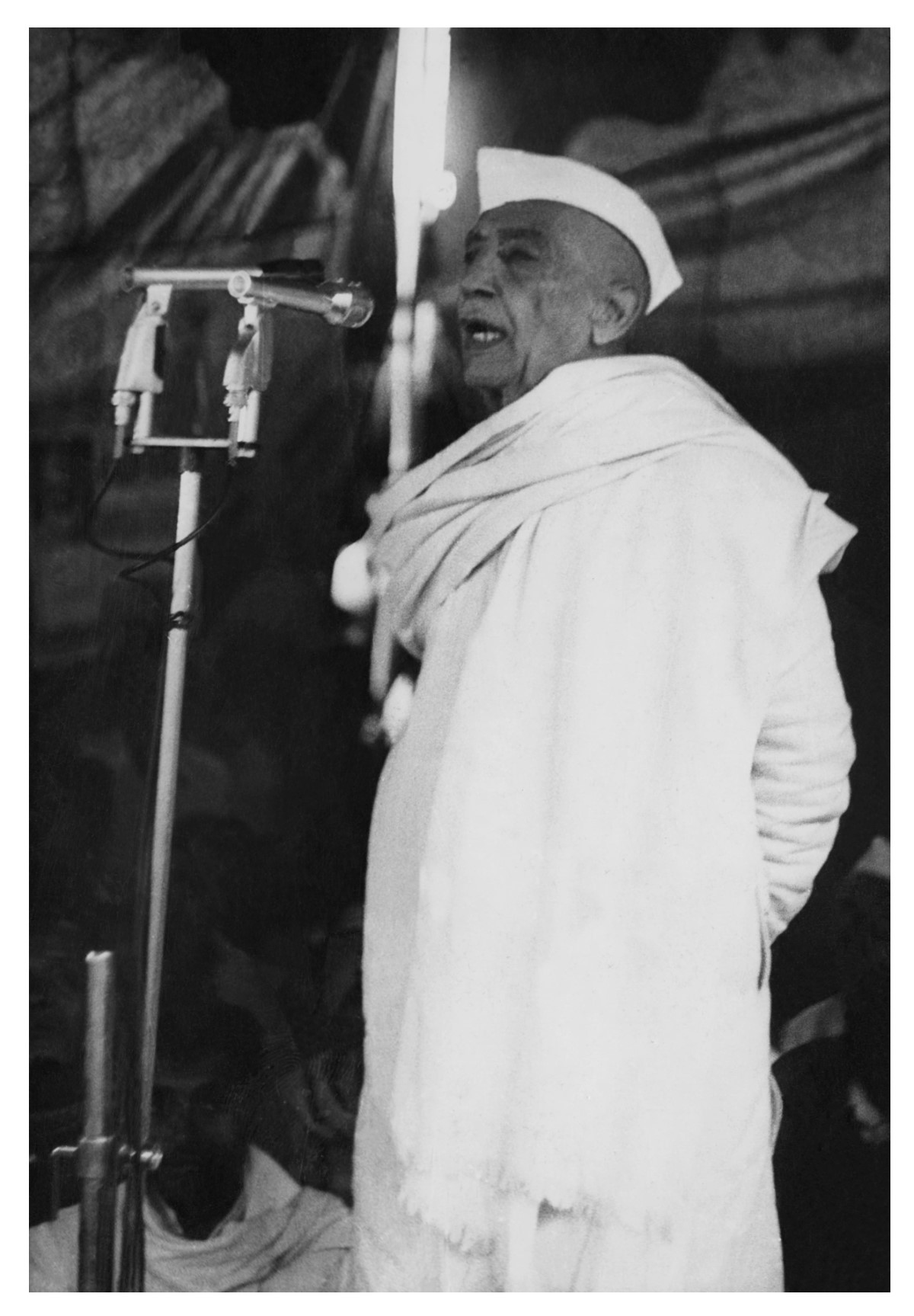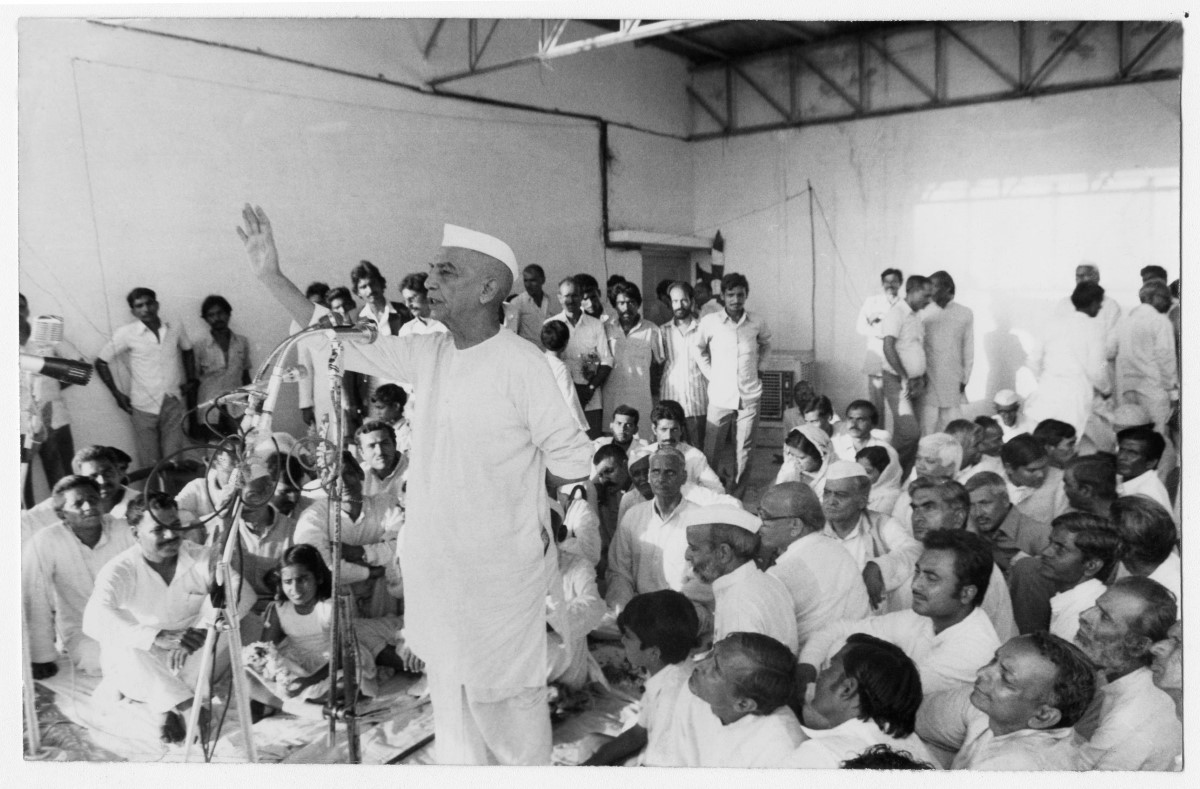Chaudhary Charan Singh’s Speech on March 23, 1976 in the Uttar Pradesh Legislative Assembly during the dark days of the Emergency
"What is the present situation? The situation is that lakhs of people are inside the jail. The movement of 1942 is considered to be the most important movement in the history of Gandhiji's era, but in that 60-61 thousand people went to jail, whereas today Shri Om Mehta himself believes that 1 lakh 30 thousand people have been arrested this time. Whether you take it as 1 lakh 20 thousand or reduce it to one lakh, but more people than ever before have gone to jail this time than during the period of slavery to the British.”
On March 23, 1976, Shri Charan Singh gave a speech in the Uttar Pradesh Legislative Assembly just 3 weeks after being released from Delhi’s Tihar Jail by Mrs. Gandhi. This speech is considered to be a milestone in India's parliamentary speeches. Delivered against the harsh backdrop of the authoritarian Emergency, this oration was a beacon of hope that took an uncompromising stance against tyranny. It was a reaffirmation of Chaudhary Charan Singh’s unwavering commitment to the democratic ideals written in India’s Constitution at a time when it seemed all was lost. The people are supreme, he said, not the ruler.
This speech was banned from being published in the media as he nation was under draconian censorship where the State decided what was fit for the people to read and for the media to publish. There was freedom of expression only within the state and central Legislature during the Emergency, but there were a ban on the publication of legislative proceedings in the media. That is why this speech reached the people after a long time, banned as it was till 1977 when the Emergency was finally lifted on the electoral defeat of the Congress (I). Few people spoke as openly as Chaudhary Charan Singh, with fearlessness and ability. At the age of 73, he delivered this powerful four-hour speech that was received by rapt attention and silent embarrassment by the treasury benches of the Congress (I).
Not only is the speech remembered for its acute and eloquent criticism of the then current circumstances, but it is also remembered for its profoundly humanistic appeal to reason, conscience, and the fundamental ideals of justice that are at the core of a society that is both democratic and free.
The Emergency: A Nation in Chains
The Emergency imposed by then-Prime Minister Indira Gandhi was the darkest and most oppressive period of India’s post-Independence history that saw the systematic undermining of the nation’s democratic foundations. Fundamental rights were suspended, the press was muzzled, and dissenting voices were subjected to widespread persecution. Arbitrary arrests and detentions became commonplace, as the rule of law was overshadowed by the unchecked power of the executive. Institutions meant to uphold democracy – the judiciary, the press, and the legislature – found themselves paralyzed and co-opted under the full weight of Mrs. Gandhi’s authoritarian might. This was a time of a national existential crisis, where the ideals that had inspired India's struggle for freedom from a colonial power were guillotined by an indigenous, imperial ruler.
It was against this backdrop that Chaudhary Charan Singh, by then already a veteran politician and champion of the peasantry and village economy, delivered this seminal speech in the Uttar Pradesh Legislative Assembly on March 23, 1976. Charan Singh had been a vocal critic of the Congress (I) and its policies including the cult of the leader, and this speech was a defiant and impassioned stand against the erosion of democratic rights.
Charan Singh exposed the fallacious justifications used to impose the Emergency, highlighting the government's blatant disregard for the rule of law and the fundamental freedoms enshrined in the Constitution. He condemned the suspension of civil liberties, the denial of due process, and the revocation of the basic rights of citizens. Charan Singh's words were a clarion call to the conscience of the nation, a stirring reminder of the precious values that had been trampled upon in the name of political expediency.
Charan Singh's speech was a testament to the enduring power of dissent and the indomitable spirit of those who refused to bow to the forces of tyranny. In the face of overwhelming state power, he stood firm, undaunted by the consequences that his actions might bring. His unwavering commitment to the ideals of democracy, rule of law, and the fundamental rights of citizens served as a shining example of the courage and conviction required to confront authoritarian regimes.
In the context of the oppressive Emergency, Chaudhary Charan Singh's speech emerged as a remarkable act of defiance. Dr. L.M. Singhvi, a legal luminary, described the speech as akin to "thunder and lightning," a moment of piercing clarity during a time of overwhelming gloom. Charan Singh's words not only laid bare the stark realities of the Emergency but also reignited the spirit of freedom in the underground where his speech did the rounds.
The Courage to Speak
Charan Singh's address began with humility and grace, also setting the stage for the gravity of the occasion. He acknowledged the profound crisis facing the nation, recognizing the emotive nature of his impending remarks. With utmost sincerity, Charan Singh sought the indulgence of his fellow legislators, aware that the intensity of his words might occasionally slip into harshness. Yet, this was no mere political posturing – his aim transcended the pursuit of partisan advantage. Rather, Charan Singh sought to initiate a heartfelt, honest dialogue about the very soul of the nation and the democratic foundations upon which it was built.
In the face of the Emergency's oppression, Charan Singh's opening remarks attempted to strike a balance. He conveyed a deep understanding of the emotional turmoil gripping the country, while also maintaining a measured, thoughtful approach. By humbly appealing for understanding, he demonstrated a powerful self-awareness, cognizant that his words carried the weight of responsibility and the potential to invoke strong reactions. Charan Singh's humility reflected a steadfast commitment to the principles of democratic discourse, where dissent is not merely a right but a duty to be exercised with wisdom and care.
Amidst the stifling environment of the Emergency, Charan Singh's opening gambit set the tone for a speech that would become a seminal moment in India's parliamentary history. His willingness to engage in a "heartfelt dialogue" about the nation's future signalled a profound recognition that the path forward required not just political manoeuvring, but a deeper reckoning with the very ideals that had inspired India's struggle for independence. Charan Singh laid the groundwork for a transformative oration that would challenge the conscience of his audience and rekindle the flame of democratic resistance.
“Mr. Speaker, Sir, today’s debate in the House is of historic significance,” he began. “Our country and its future are in the throes of an extraordinary and unprecedented crisis.” This opening set the tone for a speech that was not just a critique but a moral and ethical inquiry into the state of the nation.
His speech articulated the anguish of a stifled nation. With meticulous detail, Charan Singh highlighted the arbitrary arrests, the suppression of fundamental freedoms, and the pervasive fear gripping society. He spoke of the curtailment of press freedoms, the manipulation of the judiciary, and the widespread use of torture as instruments of state control. His words painted a vivid picture of a nation in bondage, invoking both sorrow and righteous indignation.
A Call to Conscience
One of the most notable aspects of Charan Singh's speech was its appeal to the moral conscience of his audience. He urged his fellow legislators, particularly those on the ruling benches, to reflect deeply on the impact of their actions. He reminded them of India's hard-won freedom and the sacrifices made during the struggle for independence.
"Colleagues, I implore you to consider the nation's welfare," he stated. "Our lives are fleeting, but the nation is eternal. Therefore, I ask you to search your hearts and impartially assess the situation facing our country, without any preconceptions."
Charan Singh's words transcended mere critique of the government; they were a plea for introspection. He emphasized that the privilege of free speech in the legislature was not just a right, but a responsibility to speak truth to power.
Whither India?
At the heart of Charan Singh's speech were three haunting questions that encapsulated the essence of his critique, challenging the legitimacy of a government that had abandoned the principles of justice, equality, and freedom: Whither India? Whither Democracy and Rule of Law? Whither Human Dignity and Liberty? These questions laid bare the fundamental issues facing the nation, demanding a reckoning with the nation's future direction and the preservation of its democratic foundations.
Through his speech, Charan Singh took the Assembly on a metaphorical "Bharat-Darshan," a journey across the breadth of the nation, exposing the systemic breakdown of constitutional and political systems. He spoke with vivid detail of the suspension of fundamental rights, the erosion of judicial independence, and the widespread use of coercion and violence by the state. His speech was replete with carefully marshalled facts and compelling anecdotes, making an irrefutable case against the continuation of the Emergency and the need to restore the rule of law and protect the inherent dignity and liberty of the people.
The Legacy of Courage
Dr. Singhvi's description of Charan Singh's speech as a reflection of the man himself is highly accurate. "The message is the man," Singhvi wrote, highlighting how the speech captured Charan Singh's courage, integrity, and commitment to justice. It was a testament of truth, a call to action against oppression, and a reaffirmation of faith in India's resilient democratic spirit.
In his address, Charan Singh invoked the wisdom of Jawaharlal Nehru, quoting from Nehru's 1936 speech to the All-India Congress Committee: "A government that suppresses the press and literature, that bans hundreds of organizations, that keeps people in prisons without trial is a government that has lost all justification for its existence." These words, delivered decades earlier, resonated deeply in the context of the Emergency, underscoring the timeless nature of the struggle against authoritarianism from the father of the woman who existed politically simply because she was his daughter.
Hope Amid Despair
Charan Singh’s speech at times oscillated between despondency about what the situation at that time and optimism for the future. While he depicted a bleak portrait of the nation’s current condition, he also expressed unwavering faith in the eventual triumph of freedom. Quoting the renowned poet Byron, he concluded with an inspiring reminder:
"For Freedom's battle once begun,
bequeathed by bleeding sire to son,
though baffled oft is ever won."
This juxtaposition—of melancholy and hope, despair and determination—endowed the speech with its lasting impact. It transcended criticism of the Emergency, serving as a reaffirmation of the values that underpin India's modern national identity as a democratic republic.
A Timeless Reminder
Chaudhary Charan Singh's speech stands as a unique moment in India's parliamentary history. It serves as a powerful reminder of the enduring strength of truth, the resilience of democratic principles, and the courageous spirit required to confront oppression. In a global landscape where democracy faces formidable challenges, his words continue to inspire, urging us to uphold the fundamental tenets of liberty, justice, and equality.
As we reflect on this historic speech, we are reminded that the struggle for freedom is an ongoing battle. It demands constant vigilance, unwavering commitment, and the fortitude to speak out, even when the odds appear daunting. Charan Singh's legacy stands as a guiding light, compelling us to protect and nurture the democratic ideals that form the bedrock of our nation.
Sources and References
.[1] Speech by Chaudhary Charan Singh 23 March 1976. https://www.charansingh.org/up-vidhan-sabha
.[2] Proceedings of the Uttar Pradesh Legislative Assembly (23 March 1976 to 5 May 1976)
.[3] Dr. L.M. Singhvi. (1979) The Message is the Man. https://www.charansingh.org/archives/message-man
.[4] Dr. A Surya Prakash (2023) Remembering the Dreaded Emergency: Lessons for the Future of Indian Democracy. https://www.vifindia.org/article/2013/June/26/remembering-the-dreaded-emergency-lesson-for-future-of-indian-democracy
.[5] P.M. Mussels (1980) Democracy and Emergency rule in India. https://shareok.org/handle/11244/4750
.[6] A. Shandilya (2012) Emergency Provisions in the Indian Constitution: A Study of the Internal Disturbances of 1975 (12 July 2012) https://dx.doi.org/10.2139/ssrn.2260728
.[7] D. Subramaniam (2019) Afterlives of the Emergency. Dissent, 66 (4) 167-171. https://doi.org/10.1353/dss.2019.0076


